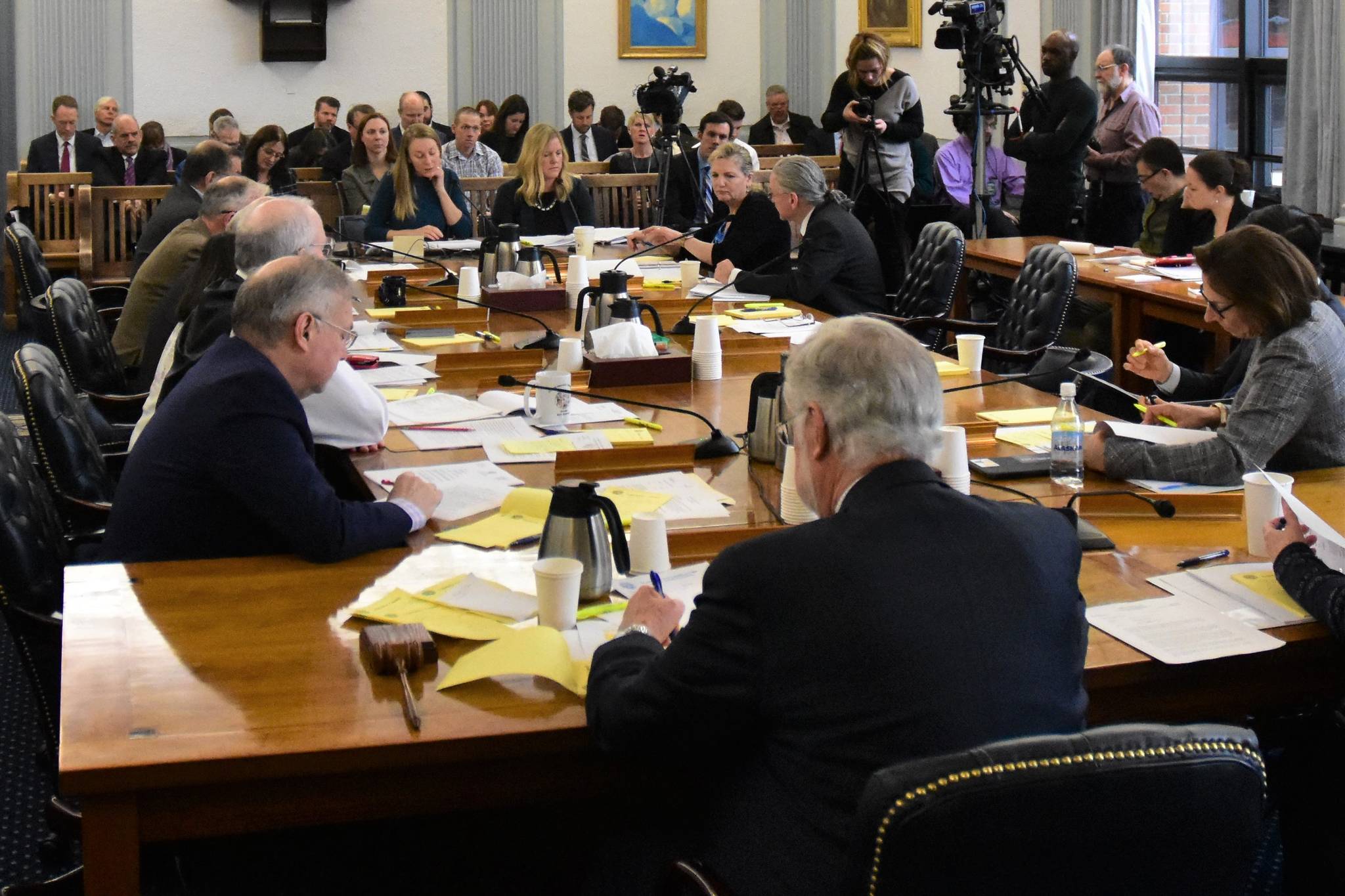Without signaling their full support for the initiative itself, lawmakers on the Legislative Council Tuesday expressed interest in portions of a ballot initiative that would reduce the state’s oil tax credits it gives to certain oil producers.
Representatives from the Department of Law and the Department of Revenue presented an analysis on the Fair Share Act to the council, a joint committee of senators and representatives, on the ins and outs of the proposed initiative.
The initiative would increase gross taxes, get rid of certain tax credits and increase the state’s share of the profits on a few of the North Slope’s most productive fields, according to Vote Yes for Alaska’s Fair Share, the group sponsoring the ballot initiative. Sen. Bill Wielechowski, D-Anchorage, has proposed similar legislation.
While most of the lawmakers present didn’t express support or opposition for the initiative, they took turns picking apart aspects of the proposal and what the initiative could do if enacted into law.
One of the provisions would make all the filings and supporting information relating to the payment of taxes a matter of public record. Under current law, revenues related to certain taxes are confidential, according to Colleen Glover, tax director for DOR.
Sen. Natasha Von Imhof, R-Anchorage, expressed vehement opposition to that provision saying it was unfairly singling out a particular industry.
”Do you know of any other corporation that pay taxes to Alaska now, is their checkbook public?” Von Imhof asked. “The fairness of that. How businesses can operate competitively with that, how we are highlight a particular business over others. Just (the) punitive nature of that on so many levels. I find it despicable that we would treat a particular company like that.”
But other lawmakers acknowledged the state has had issues with the lack of disclosure laws in the past. Wielechowski is a supporter of the Fair Share Act and has a bill which would have similar effects. He is not on the Legislative Council but was in attendance at the meeting. He called the lack of disclosure of North Slope profits, “flying blind.”
“How are we as policy makers supposed to figure out what is a fair amount (for taxes) when we can’t even find out what the expenses are, we can’t even find out what the profits are. We have to guess,” Wielechowski said in an interview. “And then the industry comes in and says, ‘No, it’s too expensive.’”
Sen. Bert Stedman, R-Sitka, said the lack of disclosure information had been brought up repeatedly in presentations over the years. Stedman agreed that there was a need to protect a company’s confidentiality but there was a similar need for the state to have more information.
“Where is the boundary for us to have access to information? That’s something we need to clarify,” Stedman said at the meeting. “There’s a need in my opinion for more information but what is the definition of ‘more?’”
Because Vote Yes for Alaska’s Fair Share submitted the signatures for the ballot initiative before the beginning of the legislative session, the measure will appear on the next statewide ballot which occurs 120 days after the legislature convenes, according to Assistant Attorney General Cori Mills.
If the Legislature convenes before July 6, the measure could be on the November ballot alongside the presidential vote.
Vote Yes is currently suing the Division of Elections and Lt. Gov. Kevin Meyer over the wording of the summary used when preparing the ballot, but historically those matters have been resolved quickly and should not affect the initiative’s ballot date, Mills said.
• Contact reporter Peter Segall at 523-2228 or psegall@juneauempire.com.

